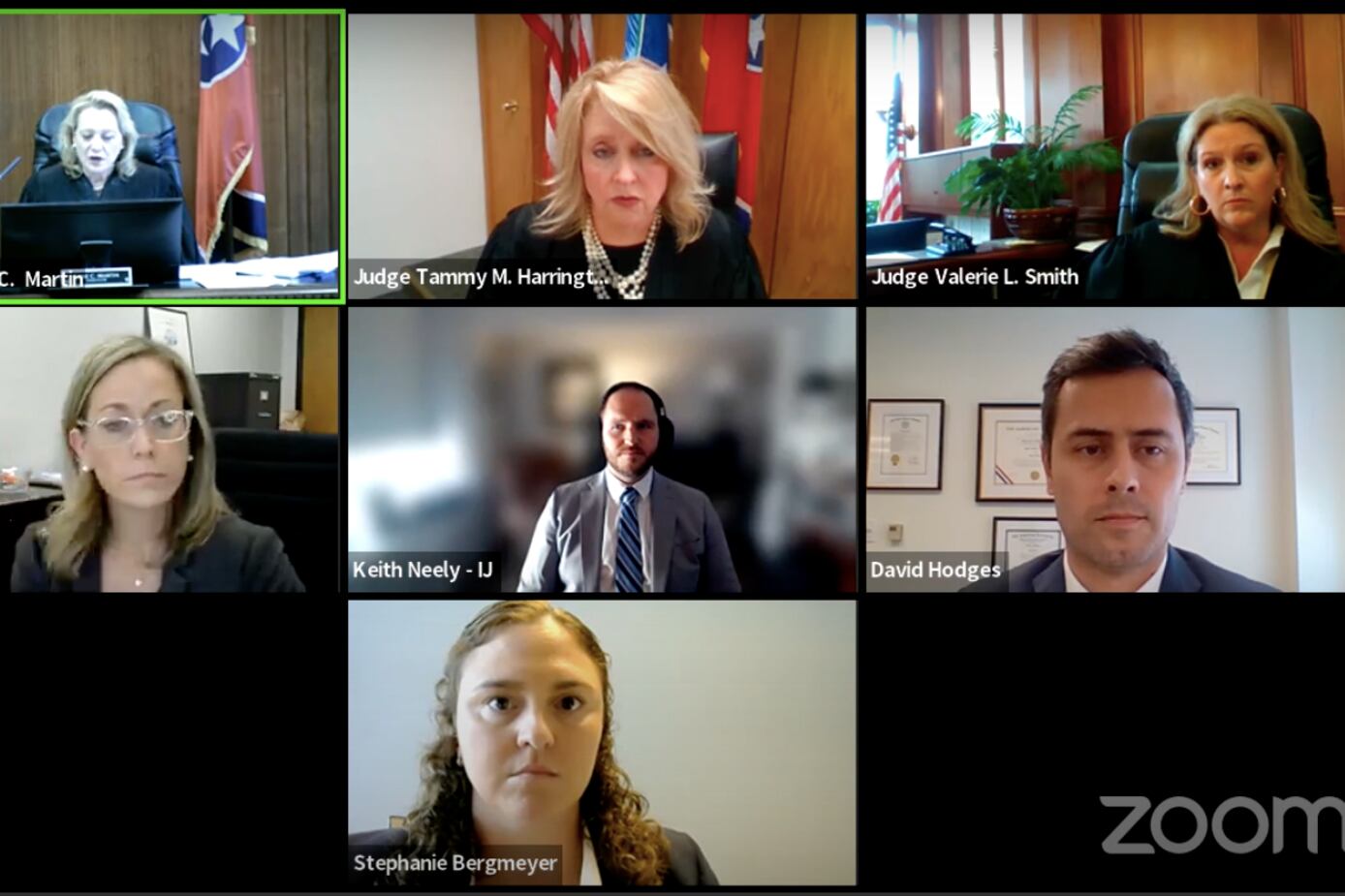A judicial panel declined Friday to block Tennessee’s private school voucher program from launching this school year, as the state began accepting applications from families in Memphis and Nashville seeking taxpayer money to pay for a private education.
The judges said plaintiffs in two lawsuits against the state, including one from local governments in the two cities, failed to show that a second injunction against the program was warranted.
“Specifically, we are unpersuaded that the harm the Plaintiffs believe to be imminent is sufficiently irreparable or certain so as to justify blocking the implementation” of the state law at this stage of the litigation, the judges wrote.
In their 13-page decision, the judges also said they weren’t convinced the plaintiffs are likely to succeed in their remaining challenges to Tennessee’s 2019 education savings account law.
The ruling, following a nearly four-hour hearing earlier in the day, clears the way for Gov. Bill Lee’s administration to begin giving approximately $8,000 in taxpayer money to each of up to 5,000 families in the program’s first year.
State officials said 2,185 families and 83 private schools completed forms in July to indicate they are interested in participating. But it’s uncertain how many families will qualify.
To be eligible, a family must be zoned to attend Memphis-Shelby County Schools, Metropolitan Nashville Public Schools, or the state-run Achievement School District. The student had to attend public schools last year for the full school year, or be set to enroll this year for the first time. And household income can’t exceed twice the federal income eligibility guidelines for a free school lunch, which is $47,606 for a family of two or $72,150 for a family of four.
Motions asking the court to block the rollout were the latest attempt by Nashville and Shelby County governments, along with several anti-voucher groups representing parents, to stall the program as they challenge the state’s voucher law in court.
The Tennessee Supreme Court upheld the voucher law in May based on one legal challenge. Then in mid-July, a separate three-judge panel lifted a court order that had mothballed the program starting in 2020. That same day, the governor announced plans to resume work immediately to start the program in the upcoming school year, just weeks away. The state’s education department has been scrambling ever since to meet those expectations.
Lawyers seeking a second injunction argued the expedited rollout was confusing for families and creating havoc as Memphis-Shelby County Schools and Metropolitan Nashville Public Schools start their new school year on Monday.
“Nothing requires the state defendants to push this forward at a rocket’s pace after the injunction was lifted, just before the school year started,” said Allison Bussell, Metro Nashville’s associate law director, representing the two local governments.
She argued that allowing the program to start will cause irreparable harm to both districts, which she said stand to lose $26 million this school year if 3,000 students shift from public to private schools — while the districts must maintain and staff the same number of schools.
“Taking millions of dollars away from public schools and sending it to private schools will never help those public schools,” Bussell said.
But Stephanie Bergmeyer, a lawyer for the state, noted that the the districts will receive school improvement grants to offset any financial losses during the program’s first three years.
She and fellow state attorney Jim Newsom also said the state is simply following state law to get the program off the ground.
“This court previously erred by issuing an injunction that froze in place the state defendants against taking any steps in preparation toward the implementation of the ESA act on the basis that the act violated the Tennessee home rule amendment,” Newsom said. “The panel should not multiply the error by imposing a temporary injunction before trial based on the secondary arguments that the plaintiffs now advance.”
The plaintiffs will head back to court on Sept. 19 to argue remaining complaints in the case. They say the law violates the state constitution’s “equal protection” clause, under which the state is obligated to maintain a system that provides for substantially equal educational opportunities for its residents. Vouchers, they say, would create unequal systems by targeting two counties and diverting funds from their public school systems to private and home schools.
“We are confident [the court] will recognize the merits of our clients’ claims and the many ways this voucher program violates the essential guarantees of the state constitution,” said Chris Wood, a Nashville attorney representing nine public school parents and community members in a second lawsuit against the state.
But others representing several pro-voucher groups called the judges’ ruling a victory for families who want more education choices for their children.
“School choice should not wait a day longer in Tennessee; and after today’s ruling, it won’t,” said Arif Panju, senior attorney for the Virginia-based Institute for Justice.
Research on the effectiveness of vouchers is mixed. Recent studies have found that using a voucher tends not to help — and may even harm — students’ test scores, especially in math. Other studies, though, have found neutral or positive effects of vouchers on high school graduation and college attendance.
Marta W. Aldrich is a senior correspondent who covers the statehouse for Chalkbeat Tennessee. Contact her at maldrich@chalkbeat.org.







